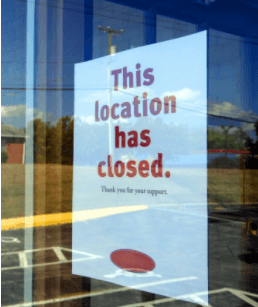Filing for bankruptcy can be a very trying experience. At Skinner & Associates, we understand that good people can find themselves in unfortunate circumstances. Navigating the waters of a bankruptcy proceedings can be confusing. Determining the right option can be even more overwhelming. This is where a skilled bankruptcy attorney can help you make the best decisions for your situation.
Chapter 13 Overview
Chapter 13 bankruptcy allows you to retain ownership of your property while you pay off your debts. Under this type of bankruptcy, you will work with your attorney to create a repayment plan over a predetermined period of time. Generally, the plan lasts from three to five years. During the repayment period, creditors cannot seek collection of outstanding debts. At the end of the plan most unpaid debts are discharged by the court.
Chapter 7 Overview
Chapter 7 bankruptcy requires you to sell all non-exempt property. Once property is sold, the proceeds of the sale are distributed to the creditors in an effor
t to repay debts. The nonexempt assets are sold by a trustee of the estate. After the sale of property and repayment of creditors, most remaining debt incurred by an individual will be discharged by the courts.
Who is eligible?
Corporations are not able to file Chapter 13 bankruptcy, nor are individual debtors with an annual regular income of a certain level. Conversely, both corporations and individuals are able to file Chapter 7. There is no limit to the amount of debt you can seek relief from, however it is important to point out that the discharge of any unpaid debt is only available to individuals, and not corporate debtors.
Freezing debt
In the case of both Chapter 7 and 13 bankruptcies, all outstanding debts are frozen until the legal proceedings are finished. Individuals filing Chapter 7 can still be subject to foreclosures on property. Additionally, it will not stop a creditor from filing a lien on the property. Chapter 13 does stop the foreclosure process and gives the debtor time to make up past due payments (the debtor is still required to make current payments).
If you or someone you know is considering filing for bankruptcy, contact the professionals at Skinner & Associates. They have been providing reliable legal representation in Columbus, Ohio and surrounding communities for over 25 years.
The information at the Skinner & Associates, LLC web site is intended for general informational purposes only and not as specific legal advice. Use of this site is not intended to and does not in any way establish an attorney-client relationship. Visitors to this site should seek professional legal counsel regarding their specific matters. Attorneys at Skinner & Associates, LLC would be pleased to speak with interested parties, but we can only represent clients where we are licensed to practice, and where no other bar to representation exists. If the information provided by this website does not comply with the legal or ethical requirements of a particular user’s state or country, we may be unable to represent you.
Although we are a general practice law firm, we may be considered a debt relief agency because we help people file for bankruptcy relief under the Bankruptcy Code.




